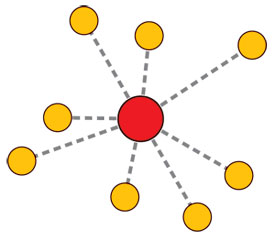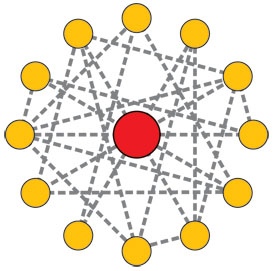Look around at the people in your organization or group or staff or team. They contain a gold mine of possibilities that you have hardly tapped.
 Each of us has a wealth of experience, ideas, dreams, desires, visions and possibilities. The history of organizations is to get people to fit in. You will do this, you won’t do that. Much of this has to do with the restriction of physicality.
Each of us has a wealth of experience, ideas, dreams, desires, visions and possibilities. The history of organizations is to get people to fit in. You will do this, you won’t do that. Much of this has to do with the restriction of physicality.
We have learned how to “behave.” In the process, we have suppressed many of the ways that people learn, articulate, discover, react and relate. We are afraid to move out of our boxes and, therefore, will never get to the information that comes from behaving in a different way.
Look at your organization.
Are things buttoned up and buttoned down? Are you afraid to speak up? To tell the truth or to share a new idea? Do you laugh together? Share stories? Create environments that are pleasant to be in?
What if you could free up even a few new resources in your group? Your team members might flourish and want to stay with you longer. They might have ideas that you never imagined. They might bring unexpected gifts to the way your organization runs. Collaboration and cooperation might increase.
Do you want to sit on that gold mine or dig into in?
Folks doing and leading InterPlay have been exploring hidden territories of possibility for over twenty years. We have developed the tools to release these rich resources. Find out more about InterPlay classes and workshops.



 Posted by fridaymorninginterplay
Posted by fridaymorninginterplay 


